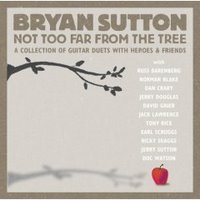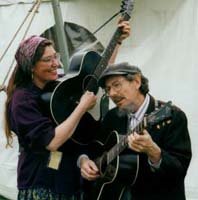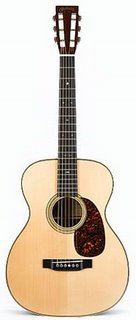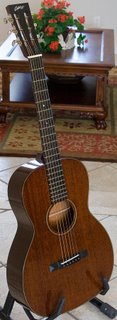How Often We "Do this..."
 Over a pleasant lunch yesterday, I was surprised to hear from an OPC minister that he convinced his session (board) to agree to weekly communion in the morning, and bi-weekly communion at the evening services. There are not too many Reformed churches which follow this pattern at worship, and the ones that do are usually liberal in orientation. When I asked why, the very orthodox pastor replied that Calvin encouraged weekly communion, and that more importantly, in the New Testament it seemed to be the practice.
Over a pleasant lunch yesterday, I was surprised to hear from an OPC minister that he convinced his session (board) to agree to weekly communion in the morning, and bi-weekly communion at the evening services. There are not too many Reformed churches which follow this pattern at worship, and the ones that do are usually liberal in orientation. When I asked why, the very orthodox pastor replied that Calvin encouraged weekly communion, and that more importantly, in the New Testament it seemed to be the practice.I was asked how often our congregation celebrated the Lord's Supper, and I said that we generally commune five times a year: once each quarter, plus Maundy Thursday evening. When I have had this discussion on previous occasions with other evangelical pastors, they usually reply that their church celebrated on the first Sunday of each month. So, in short, I am taking up the rear with regards to 21st century sacramental practice. I believe that the advice given to Calvin by the Genevan Town fathers to follow Zwingli's pattern of quarterly communion to be sound counsel, in that it prevents the sacrament from becoming the thin edge of the wedge of liturgicalism and sacramentalism, and also prevents the Lord's Supper from losing its profundity through overuse - i.e., familiarity breads, if not contempt, perhaps rather apathy.
Let me confess that I have never appreciated Calvin's views on the sacraments, they seem to be insufficiently distanced at times from Romanism. Weekly communion aside, several of Calvin's descriptions of what occurs in the Lord's Supper sound awfully realistic, i.e., hinting at a physical presence of Christ in the bread and wine. In Book IV of the Institutes, Calvin writes, "First, the signs are bread and wine, which represent for us the invisible food that we receive from the flesh and blood of Christ" (17.2). "In this Sacrament we have such a full witness of all these things that we must certainly consider them as if Christ here present were himself set before our eyes and touched by our hands" (17.3). "For he in some measure renews, or rather continues, the covenant which he once for all ratified with his blood...whenever he proffers that sacred blood for us to taste" (17.1).
One could sum up Calvin's view of the Supper in the two Latin words he loved, Sursum corda - we are lifted up to heaven and fed at Christ's table. Now I find that a bit mystical and mystifying, frankly, having never experienced anything of the sort myself. I appreciate the Supper as a memorial of Christ's atoning death on my behalf, and enjoy the physical reenactment of proclaiming the Lord's death until he comes. But I am uncomfortable with language which speaks of the Lord's Supper as more than a memorial, more than a sign and seal of our faith. When we say the sacraments are "means of grace," we must understand that in a Reformed Protestant way: that we are blessed, strengthened, and encouraged by the sign of the Supper, and not as recipients of some extra measure of some measurable degree of grace (which is sheer sacramentalism - i.e., grace being the agent of our justification via the sacraments). Zwingli was correct to be nervous about such things, and I am surprised Calvin wasn't, given his statement that our hearts are "factories of idols." Zwingli emphasized remembrance, but also thanksgiving (eucharist), which I prefer to Calvin's mystical communication of Christ in the sign itself.
So I will remain in the rear of this movement to celebrate communion more often. B.A. Gerrish has noted that for Calvin, the Lord's Supper was an offer of the gospel, but for Zwingli it was an act of remembrance and thanskgiving. Both views are Reformed, both views are evangelical, and both views complement and even guard each other from the sinful inclinations of the human heart.











